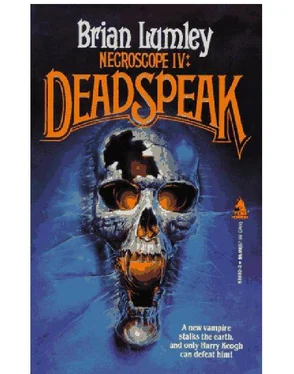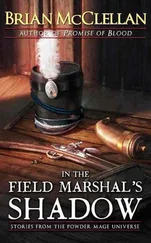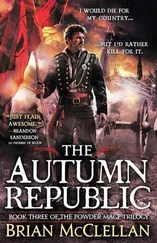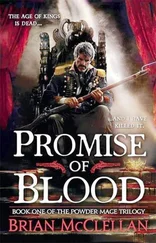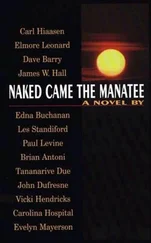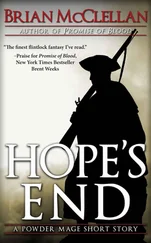Staring right into Harry's pale, relaxed, almost little-boyish face, she saw no sign as yet of the rapid eye movements which would tell her that he was dreaming. So for now she too could relax. It was Harry's dreams which most interested her. That was what she tried to keep telling herself, anyway.
She worked for E-Branch. Sometimes she wished she didn't, but she did. That was how she earned her daily bread (the meat and gravy, too), so she really shouldn't complain. And in fact there hadn't been too much to complain about, until Harry came along. At first he'd been just another job — a new friend to get close to, learn about and try to understand — but then she'd got in deeper. It had 'just happened', and afterwards she'd wanted it to happen again, and again. Until in a little while he wasn't just a job but more a way of life, not only 'on her mind', as it were, but under her skin as well. And finally she'd started to suppose, and still did, that she was in love with him.
Certainly working on Harry's case (she hated thinking of it like that, but it was the truth however she dressed it up) had been more interesting than being a human divining rod on cases the police couldn't solve. That was how E-Branch used her, usually: to eavesdrop criminal minds — the minds of prisoners in their cells, too tough for the law to crack — looking for those damning clues which more orthodox methods couldn't turn up. Which would be satisfying enough work in itself, if only she didn't actually have to go in there. Because minds like those were often cesspools, which frequently left her knowing how sewers smell. And sometimes, especially if it was a brutal murder or rape, the smell could linger for a long, long time.
Which was probably the reason she'd fallen in love with Harry Keogh. Because his mind was a field of daisies… most of the time. In fact he had the gentlest mind she'd ever come across: not soft, no way! Not even naive, though there was something of that in him too, but just… just gentle. Harry wouldn't much like hurting anything, or anybody.
With Sandra's looks it would be strange if there had been no men. There had been men, a few. But her talent wasn't something she could just switch on and off. Indeed that was its one big drawback: without so much as a by your leave, it came and went. Tonight a man would wine and dine you, take you home and kiss your hand on your doorstep, and ask to see you again. And as you were about to say yes his mind would open like a book and you would see him in there like some great rutting satyr — and you'd be in there with him. Not all men, no, but enough.
But that wasn't all; there was also the deceit; the fact that people lie. Like the neighbour in the flat next door who smiles and says, 'Good morning,' to you on the stairs, when she's actually thinking: Piss off and die, you ugly bitch! Or the hairdresser who makes small talk while he does your hair, and you suddenly hear him thinking: God, they pay me nine pounds an hour for this! She must have more money than sense, the stupid cow!
Oh, there had been men, all right. The good-looking ones who only worried how they looked. And the not-so-good lookers whose minds seethed with jealousy if anyone else even smiled at you. And then, having got safely through an entire week of evenings with a 'perfect' companion, to have him make love to you and lie there beside you in your bed, wondering if he'll have time for another and still catch the last bus home.
It was life and Sandra knew it, and she'd learned to live with it ever since her middle teens when the thing had first started to develop in her. But it hadn't left much room for 'love'. Not until Harry, anyway.
He was such… an anomaly.
She'd read his file, as well as his mind. He had killed men, a great many. That's what it said in his file. But it didn't say he remembered and regretted almost every one of them, or how every now and then he'd get the urge to go back and tell them he was sorry, but really he'd had no choice. It didn't say he still had nightmares about some of the things he'd seen and done. And anyway, Sandra really couldn't believe half of the things credited (credited? Or better perhaps, ascribed?) to him. Her own talent was paranormal, yes, but what Harry could do — what he'd used to do — was supernatural. And he'd used his powers the best way he knew how. He had killed many men with them, but he'd never murdered a one.
Sandra knew how murderers thought, and they didn't think like Harry Keogh. Their thoughts were deep and dark as red wine, but tumbled as a rough sea, and full of shoals and eddies; while his were clear spring water over rounded pebbles. Oh, his mind could be sharp, too; there were plenty of daggers in there, if you gave him cause to whet them; but they were clearly visible at all times, not hidden away, neither afraid of themselves nor of detection. No, there were no dark corners or mean streets in Harry's mind. Or if there were, he wasn't the one to dwell on or in them.
And in that same moment, lying there beside him, Sandra knew how she'd defined him. He was, could only be, one of two things: either completely amoral, or naturally innocent. And since she knew there was no lack of morality, that made him an innocent. A bloody innocent, but nevertheless blameless. A child with blood on his hands and on his conscience and in his nightmares, which he had chosen to keep to himself except when they were unbearable, when he went to Bettley. Well, she wasn't sure what that made Bettley — a Judas-priest? A father confessor who told? — but she couldn't be happy with what it made her. And the most terrible thing of all, she believed he half-suspected. Which would explain why he was never completely at his ease with her, and why he couldn't seem to enjoy her the way she wanted him to, the way she enjoyed him. Christ, to have found a man like Harry, only to discover that of all men he was the one she probably couldn't have! Not the way she wanted him, anyway.
Suddenly angry with herself — wanting to throw off all the covers and leap out of bed, but caring enough that she wouldn't disturb him — she carefully removed his hand from where it lay draped diagonally across her and slid sideways out from between the sheets. And naked she went to the bathroom.
She was neither warm nor cold nor thirsty, but she felt she had to do something. Something ordinary, to herself, to change herself physically. And that way perhaps to change her mood, too. In the daytime it would be the simplest thing: she would walk to the park and watch the smallest children at play, and know that something of their worlds of faerie would soon find its way into her own far less Elysian existence. And when that thought came, she knew for certain that for someone who was usually so positive, she must now be feeling pretty damned negative. That she should need someone else's innocence to balance the weight of her own guilt.
She drank a glass of water, splashed cold water up under her arms and breasts where their lovemaking had made her perspire, towelled her flesh dry and examined herself critically in the long bathroom mirror.
Unlike Harry, there was little or no naiveté in Sandra. There might be, except for her telepathy. But it's hard to be naive or innocent in a world where people's minds are wont to flutter open like pages in a book, and you don't have the power to look away but must read what's written there. The other E-Branch telepaths — people like Trevor Jordan — were luckier in this respect; they were obliged to apply, channel their talent; it didn't just come and go for them, like a badly-tuned radio station.
Angry again, Sandra shook her head. There she went again: great waves of self-pity! What? Pity for herself? For this beautiful creature in the mirror? And how often had she heard it broadcast, from so many of those stations out there: God, but what I'd give to be like her!
Читать дальше
